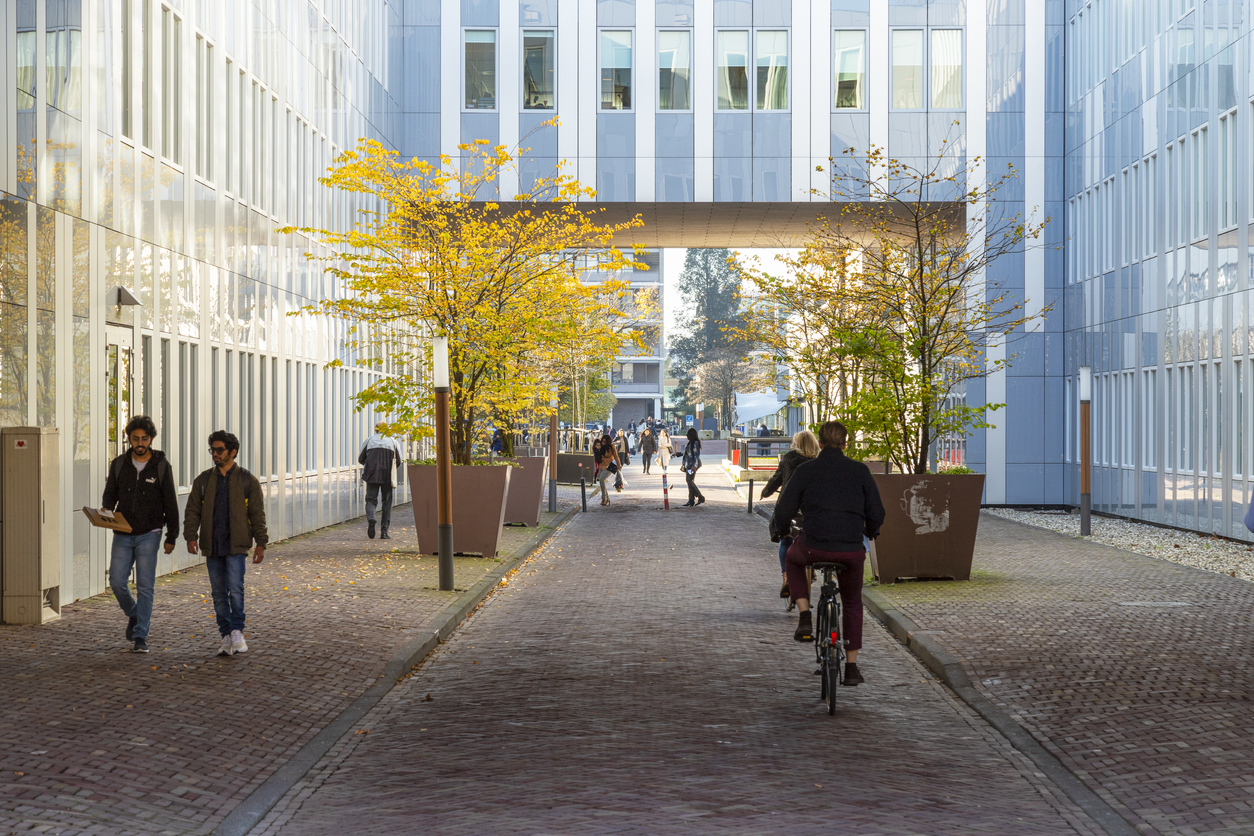Applying to university in the Netherlands: everything you need to know
Applying to university in the Netherlands is very different from applying in the UK or the US. Here’s everything you need to know

The Netherlands applies consistent national standards to university admission. If an applicant meets the admissions criteria for a course at one university, they typically meet them for all universities. Therefore, where one wants to study becomes a matter of personal choice.
Secondary education in the Netherlands is segregated in terms of learner outcomes and aptitude. Approximately 40 per cent of Dutch students receive an “academic” education, while the remaining 60 per cent obtain a more skills-oriented education, even though a core understanding of academic subjects (such as Dutch, maths and English) is still required.
Studying in the Netherlands: what you need to know
Universities in the Netherlands are divided in two broad categories: research universities, offering three-year bachelor’s degrees, and applied-science universities, offering four-year vocational qualifications.
Many research universities offer liberal arts programmes through their affiliated university colleges. Students who want to apply to research universities would typically need to present national qualifications equivalent to the Dutch VWO (preparatory scientific education).
Research universities offer courses that are either fixus (capped in terms of admission numbers) or non-fixus (uncapped in terms of admission numbers). The same university may offer both fixus and non-fixus courses.
The first step in applying to a Dutch university is to open an account on Studielink, the Dutch national database for admission to higher education, operated by DUO (Dienst Uitvoering Onderwijs).
To register on Studielink, an applicant needs a biometric ID and an active email address. Once applicants have set up a Studielink account, they can insert their chosen courses by selecting from a drop-down menu.
The maximum number of applications per cycle is four, which can include up to two fixus choices. A full list of courses at universities in the Netherlands can be found here. Once these choices are entered on Studielink, the universities will email the applicant their own specific application link (such as Osiaan, Osiris or OLAF), as well as login credentials for these.
In the vast majority of cases, research university applications invite students to upload certified (stamped and signed) grade transcripts, CVs and valid English qualifications. Some courses require the applicant to write a short personal statement, outlining the reasons for their course choice, their motivation for applying and any other skills.
Selection criteria
Once an applicant enters a course choice on Studielink, that university will usually send out several emails to the applicant. As these are often of varying importance, it is advisable that applicants add university choices one at a time to avoid confusion from a rush of emails containing similar information. We also advise our students to use their school email accounts for this purpose, because emails tend to end up lost in the clutter of personal accounts.
The Studielink registration deadline for numerous fixus courses is 15 January in the applicant’s final school year. For the majority of the non-fixus choices, an EU applicant can insert a choice on Studielink until early spring (typically 31 April or 1 May). For non-EU students, these timelines differ because of immigration and visa procedures. Likewise, the EU tuition fee, set centrally for all institutions, is significantly lower than the fee for non-EU students. More information on student finances in the Netherlands can be found here.
While admission to a non-fixus course is guaranteed (provided the application was complete and submitted within the set timeframe), this is not the case for fixus courses.
Fixus courses require applicants to participate in selection tasks either remotely (taking an online test) or in-person (attending a selection day), with the aim of determining an applicant’s ranking number. The ranking number for all fixus courses is published on Studielink on 15 April. Students who are ranked within the preordained number of places available for the particular course are admitted.
Students who fall slightly below this benchmark may be subsequently admitted if and when places become vacant – for example, if students opt to enrol on their other chosen fixus courses, or have already committed to non-fixus choices.
For courses such as medicine or law, where almost all students present top grades and meet all non-academic selection requirements, selection can be by ballot because the number of well-qualified candidates exceeds the number of available places on these courses.
Additional information
While students apply to different countries with different decision timelines, any Dutch choice should be treated as their primary one because of the acute housing shortage in the country. If a student waits for decisions from their other institutions before they begin their house hunt, it is highly likely that there will be very little available housing left. Universities themselves discourage students from travelling to the Netherlands to commence their studies if they have not already secured housing.
Students who come from systems where admission to higher education institutions requires certain exam scores (for example in IB or A levels) often underestimate the quality and rigour of Dutch university courses, especially the non-fixus ones.
Counsellors ought to stress to their advisees that progression to the second year of a degree course in the Netherlands is neither automatic nor guaranteed. If a student does not achieve at least 75 per cent (or 45 out of 60 ECTS) in their first year, and no extenuating circumstances apply, they will be issued a Negative Binding Study Advice (BSA). This means that they will not be able to continue their studies on this course.
Conversely, if a student scores above 75 per cent (or more than 45 ECTS), this effectively means that they can progress with their three-year bachelor’s degree without using more than one extra year, essentially graduating in three years instead of four.




